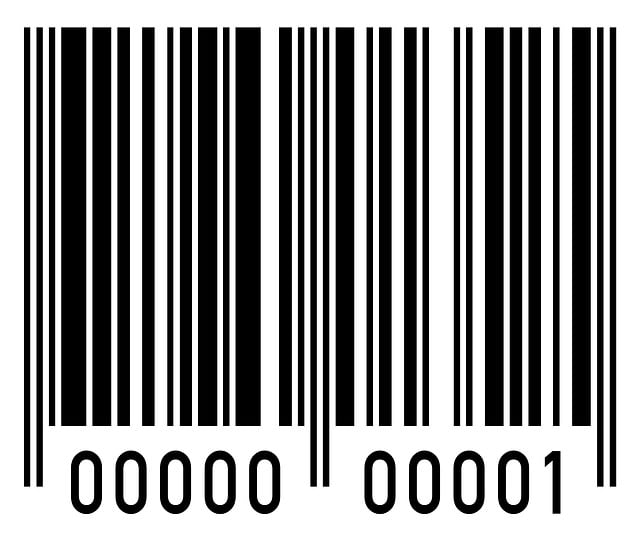The Vehicle Identification Number (VIN) serves as a car's unique identifier, offering a detailed history including manufacturing details, ownership records, service history, and accident reports. VIN checks are crucial for buying used cars, preventing fraud, and ensuring transparency. Advanced data analytics cross-reference VINs with databases to provide accurate vehicle history reports. These tools are essential in combating fraud, exposing manipulated records, and aiding informed purchasing decisions. The text also discusses the role of technology in urban planning and its transformative impact on modern life, highlighting the need for innovative solutions to urbanization challenges.
In the digital age, a Vehicle Identification Number (VIN) check has emerged as an indispensable step in the car buying process, rivaling even a test drive in importance. Every VIN plate encapsulates a vehicle’s entire history, from its manufacturing to subsequent ownership changes, accidents, and even potential theft. By utilizing specialized tools for vehicle history by VIN number, buyers can access this hidden narrative, ensuring they make informed decisions. This article delves into the significance of VIN checks, exploring how these checks work, their accuracy, and the evolving landscape of car buying transparency.
- Understanding VIN: Unlocking Car History
- The Power of Vehicle History Reports
- How Accurate Are VIN Checks?
- Detecting VIN Fraud: Staying Protected
- Benefits of Using Reliable Tools
- Beyond the Test Drive: Essential Steps
- A New Era in Car Buying Transparency
Understanding VIN: Unlocking Car History

The Vehicle Identification Number (VIN) is like a unique fingerprint for each car, containing a wealth of information about its identity and history. This 17-character code is more than just a random sequence; it tells a story. Every digit and letter represents specific data, from the vehicle’s manufacture and model to its production year and assembly plant. By simply looking at or scanning a VIN plate, you gain access to a hidden narrative—a digital age time capsule that documents various aspects of the car’s past, including ownership changes, service records, and even potential red flags like accident damage or theft.
It’s akin to uncovering a vehicle’s diary, where each entry offers insights into its journey. For instance, a VIN check can reveal if a car has been in any accidents, whether it has had multiple owners, or if there are outstanding issues that could impact its value or safety. This level of transparency is invaluable for buyers, especially when navigating the market for used or classic cars, where a vehicle’s history might not always be readily available or trustworthy.
The Power of Vehicle History Reports

Vehicle history reports are like an unprecedented window into a car’s life, detailing its entire journey from manufacturer to current owner. This powerful tool provides insights beyond what’s visible on the surface, revealing critical information that can significantly impact buying decisions. With just a Vehicle Identification Number (VIN), these reports offer a comprehensive narrative of ownership changes, service records, accident history, and even potential red flags like theft or fraudulent modifications.
Access to such detailed vehicle histories empowers buyers, especially those in the market for used cars, to make informed choices. It allows them to avoid potentially costly surprises and ensures they’re purchasing a vehicle with a clean and transparent past. This is particularly crucial as VIN fraud becomes more sophisticated, underscoring the need for reliable vehicle history reporting services that safeguard consumers from deceptive practices.
How Accurate Are VIN Checks?

Vehicle Identification Number (VIN) checks have become increasingly sophisticated, offering a high level of accuracy in tracing a vehicle’s history. The VIN acts as a unique fingerprint for each car, containing intricate details encoded into its 17 characters. This coding includes manufacturing information, model year, and other identifiers. When you perform a VIN check using reputable tools, the process involves cross-referencing this data with vast databases that record various events in a vehicle’s life. These databases compile information from numerous sources, including government agencies, insurance companies, and private research firms.
The accuracy of VIN checks lies in the comprehensive nature of these databases, which capture everything from accident reports and ownership changes to odometer readings and even warranty claims. By comparing the VIN against this vast repository of data, you can gain a detailed snapshot of the vehicle’s history. However, it’s crucial to use trusted sources for these checks, as not all VIN check services are created equal. Reputable providers employ advanced data analytics and security measures to ensure the information is reliable and up-to-date, safeguarding against potential fraud or inaccuracies that less reliable services might perpetuate.
Detecting VIN Fraud: Staying Protected

Detecting VIN fraud is an increasingly important aspect of buying and selling vehicles in the digital age. While a Vehicle Identification Number (VIN) plate offers a wealth of information, it can also be manipulated or falsified. Scammers may alter a car’s VIN to conceal its true history, making it seem like a pristine vehicle when it has actually been in accidents, had parts replaced, or even been stolen.
To protect yourself from VIN fraud, it’s crucial to use reputable vehicle history tools that cross-check data against multiple databases. These services employ advanced algorithms and industry expertise to verify the accuracy of VIN information. By employing these protective measures, buyers and sellers can navigate the market with greater confidence, ensuring they’re not unwittingly caught up in a scam and that their investment is secure.
Benefits of Using Reliable Tools

Reliable tools for vehicle history by VIN number offer numerous benefits, enhancing your buying experience and safeguarding against potential pitfalls. Firstly, they provide comprehensive and accurate data, ensuring that every detail about a car’s past is laid bare. This includes not just basic specifications but also in-depth insights like ownership history, accident records, and any reported issues, allowing buyers to make informed decisions.
Secondly, these tools play a pivotal role in fraud detection, as they can uncover instances of VIN manipulation or tampering. By comparing the provided VIN with the one on the vehicle’s physical documents and components, buyers can verify the authenticity of the car they’re considering. This is crucial in an era where digital records can be altered or falsified, making trustworthy tools an indispensable ally for any car buyer.
Beyond the Test Drive: Essential Steps

A New Era in Car Buying Transparency

In today’s digital landscape, a VIN check is no longer an option but an essential step in responsible car buying. By utilizing reliable tools and staying informed about vehicle history, buyers can make confident decisions, ensuring they’re not just purchasing a car, but uncovering its entire story. As the car buying process evolves, embracing technology to access detailed vehicle histories becomes crucial for transparency, security, and peace of mind.



